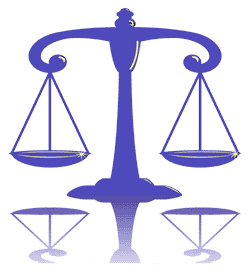 |
Looks into complaints from Reports to the European Parliament |
What he / she does
The word ombudsman is a Swedish word for legal representative. It has come to mean someone who looks into complaints by individual people against government organisations.
If the complaint turns out to be justified, the ombudsman gets the matter settled, in most cases on an amicable basis. Sometimes legal action is needed.
This is also how the European Ombudsman works in dealing with complaints against the institutions of the EU, groups like the European Commission, European Parliament and Council of Ministers.
The complaints are about what is called maladministration, in other words failing to act according to the law, inefficiencies in the way a matter has been handled, a disregard of human rights.
The sort of things that might be complained about include: ![]() Unfairness
Unfairness![]() Discrimination
Discrimination![]() Abuse of power
Abuse of power![]() Lack of information or refusal to provide it
Lack of information or refusal to provide it![]() Unnecessary delay
Unnecessary delay![]() Incorrect procedures.
Incorrect procedures.
The Ombudsman acts entirely independently and impartially. The Ombudsman does not accept or request instructions from any government or organisation.
 |
The job is held by Mr P Nikiforos Diamandouros. He was first elected by the European Parliament in 2003. He was re-elected for a further five years in January 2010. Before taking up his present position he was the national ombudsman for Greece. |
How to make a complaint
If you have a complaint to make the first thing to do is to contact the EU group you are complaining against and try and get the matter put right.
It’s only if that approach fails that you should complain to the European Ombudsman.
If you decide to contact the Ombudsman you must make your complaint within two years of the date on which you became aware of the act of maladministration.
You must clearly state who you are, which group or institution you are complaining about and what the problem is. You may ask for the complaint to kept confidential.
You may express your complaint in any one of the 24 official languages of the EU.
What happens then
First, the Ombudsman has to check whether the complaint can be handled by his or her office. It may have, for example, already been the subject of court case. In that event he or she will advise on which other body may be able to help.
If the complaint is an appropriate one for the Ombudsman to handle, the Ombudsman will inform the institution or group concerned that a complaint has been received.
If the problem is not cleared up as a result of the enquiries, the Ombudsman will try to find a friendly solution which puts the matter right and satisfies you.
If this fails, the Ombudsman can make recommendations on how the matter can be resolved.
If the institution concerned does not accept the recommendations, the Ombudsman can make a special report to the European Parliament so that the Parliament can take whatever political action is necessary.
Every year the Ombudsman presents a report to the European Parliament.
| For more information about the European Ombudsman click the logo here |  |

